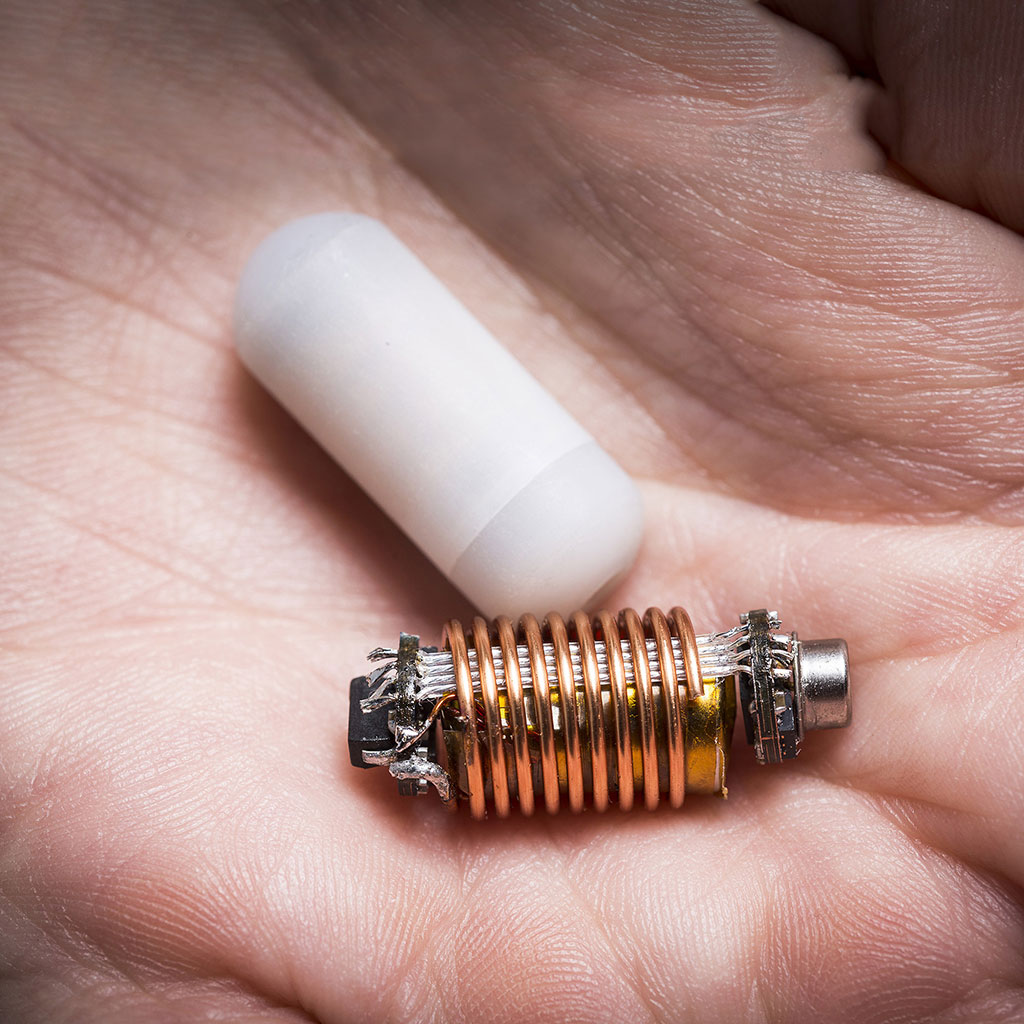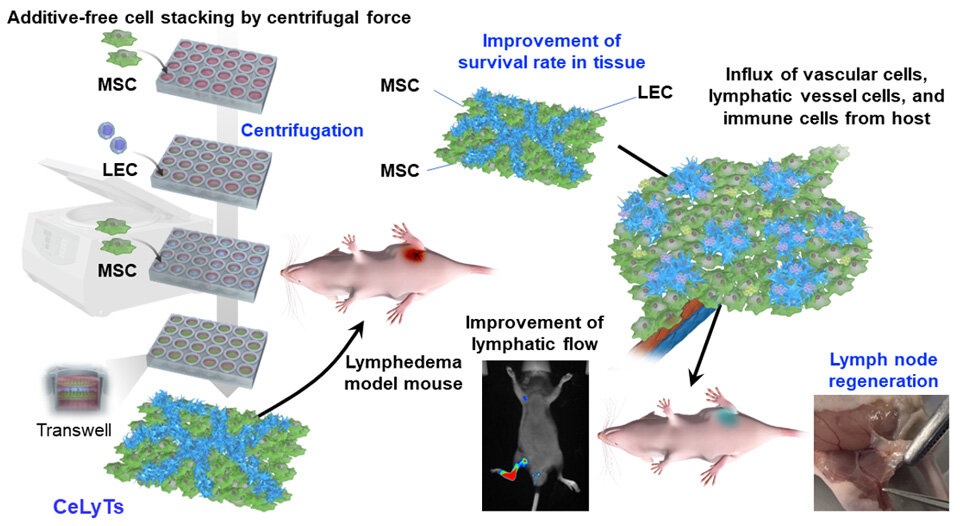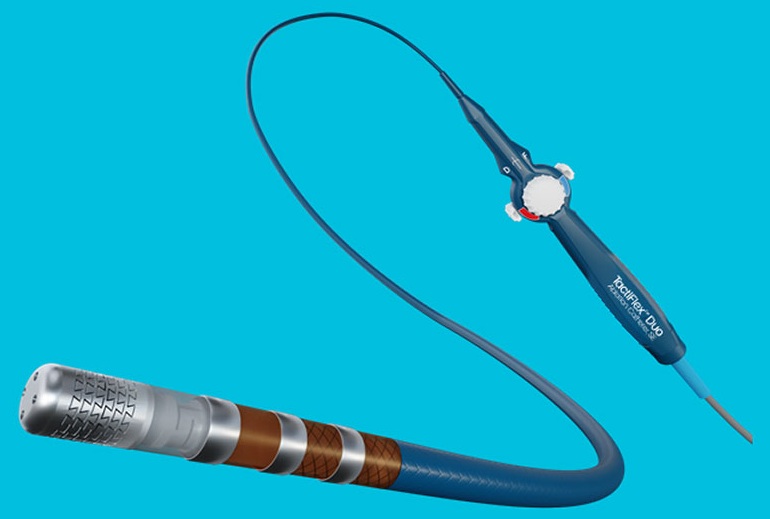World-First Ingestible Gas-Sensing Capsule Could Revolutionize Diagnosis and Treatment of Gastrointestinal Disorders
|
By HospiMedica International staff writers Posted on 26 Apr 2023 |

Gut disorders are among the most common health issues worldwide, affecting tens of millions of people. Current diagnostic methods for gastrointestinal disorders are often invasive or rely on subjective symptom reports and questionnaires. Existing diagnostic techniques, such as aspiration, biopsy, endoscopy, motility pills, imaging pills, and breath testing, all have limitations. Gases serve as crucial biomarkers for disease, dysfunction, and dysbiosis, and real-time gas sensing within the gut offers an accurate, convenient way to diagnose common gastrointestinal conditions, such as food intolerances, motility disorders, SIBO, and IBS. Now, a gas-sensing capsule capable of measuring the concentration of various gases at the source of production in the gastrointestinal tract in real-time could revolutionize testing for gastrointestinal disorders.
The Atmo Gas Capsule from Atmo Biosciences (Box Hill, VIC, Australia) is a world-first solution for accurately profiling gases within the gut to improve diagnosis and treatment of gastrointestinal disorders. When ingested, the gas-sensing capsule electronically collects essential data about the human gastrointestinal system by detecting gases in real-time from known locations within the gut, using these biomarkers for diagnosis. This approach leads to targeted treatment, earlier symptom relief, and reduced healthcare costs. The ingestible capsule could serve as a diagnostic tool for various gut disorders, from motility disorders, IBS, and IBD to liver disease.
The Atmo Gas Capsule's 2cm-long polymer shell houses gas sensors, a temperature sensor, a microcontroller, a radio-frequency transmitter, and button-sized silver-oxide batteries. The gas sensors are enclosed within a unique membrane that permits gas entry while protecting against stomach acid and digestive juices. The technology functions by adjusting the heating elements of the sensors to measure different gases, and the data can be transmitted to a mobile phone. Oxygen concentrations are used to track the capsule's progress throughout the gastrointestinal tract. Data is sent in real-time to a portable receiver, which then transmits the information via Bluetooth to a cellphone, enabling easy monitoring by users and doctors. Atmo is preparing to initiate a multi-site pivotal study to support a U.S. Food and Drug Administration (FDA) submission for the use of its gas-sensing capsule in assessing gastrointestinal motility.
Related Links:
Atmo Biosciences
Latest Critical Care News
- Intranasal Spray to Prevent Illnesses from Respiratory Viruses
- Gut Bacteria from Amphibians and Reptiles Show Complete Tumor Elimination
- High-Dose Inhaled Nitric Oxide Emerges as Promising Antimicrobial Therapy
- AI Risk Prediction Tool Improves Treatment of Cancer Patients after Heart Attack
- Glowing Bacterial Sensors Could Improve Detection of Gut Illness
- Innovative ‘Poop Pills’ Dramatically Improve Cancer Treatment

- New Nanomaterial Kills Cancer Cells While Sparring Healthy Tissues
- AI Model Accurately Predicts Neurological Recovery After Cardiac Arrest
- Battery-Free Nano-Sensors Pave Way for Next-Generation Wearables
- Imaging Technology Detects Early Signs of Cardiovascular Risk Through Skin
- New Therapeutic Approach Marks Breakthrough in Pediatric Heart Disease
- AI Model Accurately Identifies Prediabetics Using Only ECG Data
- Injectable Disease-Fighting Nanorobots to Improve Precision Cancer Therapy
- Web-Based Tool Enables Early Detection and Prevention of Chronic Kidney Disease
- Tiny Sensor to Transform Head Injury Detection
- Bacterial Behavior Breakthrough to Improve Infection Prevention in Biomedical Devices
Channels
Artificial Intelligence
view channelSurgical Techniques
view channel
New Classification System Brings Clarity to Brain Tumor Surgery Decisions
Low-grade brain tumors known as IDH-mutant gliomas (CNS WHO grade 2) are life-threatening despite their slow growth. Surgeons must balance maximal tumor removal against the risk of neurological deficits,... Read more
Boengineered Tissue Offers New Hope for Secondary Lymphedema Treatment
The rising global incidence of cancer has led to an increasing number of surgeries involving lymph node removal. While these procedures are critical for cancer staging and preventing metastatic spread,... Read morePatient Care
view channel
Revolutionary Automatic IV-Line Flushing Device to Enhance Infusion Care
More than 80% of in-hospital patients receive intravenous (IV) therapy. Every dose of IV medicine delivered in a small volume (<250 mL) infusion bag should be followed by subsequent flushing to ensure... Read more
VR Training Tool Combats Contamination of Portable Medical Equipment
Healthcare-associated infections (HAIs) impact one in every 31 patients, cause nearly 100,000 deaths each year, and cost USD 28.4 billion in direct medical expenses. Notably, up to 75% of these infections... Read more
Portable Biosensor Platform to Reduce Hospital-Acquired Infections
Approximately 4 million patients in the European Union acquire healthcare-associated infections (HAIs) or nosocomial infections each year, with around 37,000 deaths directly resulting from these infections,... Read moreFirst-Of-Its-Kind Portable Germicidal Light Technology Disinfects High-Touch Clinical Surfaces in Seconds
Reducing healthcare-acquired infections (HAIs) remains a pressing issue within global healthcare systems. In the United States alone, 1.7 million patients contract HAIs annually, leading to approximately... Read moreHealth IT
view channel
EMR-Based Tool Predicts Graft Failure After Kidney Transplant
Kidney transplantation offers patients with end-stage kidney disease longer survival and better quality of life than dialysis, yet graft failure remains a major challenge. Although a successful transplant... Read more
Printable Molecule-Selective Nanoparticles Enable Mass Production of Wearable Biosensors
The future of medicine is likely to focus on the personalization of healthcare—understanding exactly what an individual requires and delivering the appropriate combination of nutrients, metabolites, and... Read moreBusiness
view channel
Medtronic and Mindray Expand Strategic Partnership to Ambulatory Surgery Centers in the U.S.
Mindray North America and Medtronic have expanded their strategic partnership to bring integrated patient monitoring solutions to ambulatory surgery centers across the United States. The collaboration... Read more
FDA Clearance Expands Robotic Options for Minimally Invasive Heart Surgery
Cardiovascular disease remains the world’s leading cause of death, with nearly 18 million fatalities each year, and more than two million patients undergo open-heart surgery annually, most involving sternotomy.... Read more
WHX in Dubai (formerly Arab Health) to debut specialised Biotech & Life Sciences Zone as sector growth accelerates globally
World Health Expo (WHX) in Dubai, formerly Arab Health, which takes place from 9-12 February 2026 at the Dubai Exhibition Centre (DEC), has officially announced the launch of a new dedicated Biotech &... Read more
















